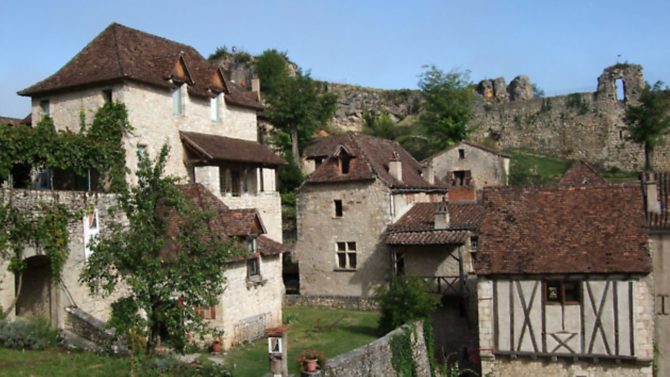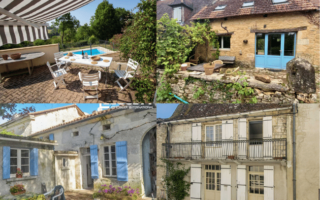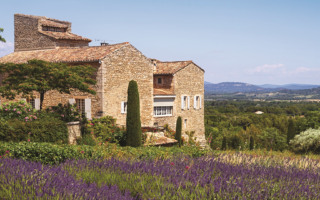Beginners’ guide to buying French property

Not sure how to get your property search off the ground? Vicky Leigh takes you through the basics and sets you on the right track to finding your French home


CHOOSING YOUR LOCATION
The internet is likely to be your first port of call, as it puts thousands of properties at your fingertips with just a few clicks of a mouse. It also enables you to find out about particular areas and typical prices. Visiting a French property exhibition – such as The France Show at Earls Court in January (see page 91 for details) is another good place to start as it gives you the opportunity to meet estate agents face to face, as well as to pick up legal, financial and all manner of other relevant information.
When it comes to choosing where you want to buy, it’s worth remembering that there’s a reason the word location is repeated three times. It’s not just the name of a television programme either. Think about your needs, and what exactly it is that you want.
The prospect of retreating into the depths of the French countryside, for example, might seem hugely appealing on paper, but the reality may be somewhat different. While you’d have peace and quiet you could be a considerable distance from amenities and transport links. Do you want to be able to return to the UK easily, and will you want family and friends to be able to come and visit you without too much difficulty or expense? Will you need to find employment, or be close to medical facilities?
It is worth being flexible and keeping an open mind when it comes to deciding on a location. While you might be drawn to the popular hotspots traditionally favoured by Brits, keep the lesser-known parts of France in mind too because there are some undiscovered gems and you may find that they’d suit you to a tee.
If your heart is set on living on the coast, for example, but your budget might not stretch that far, why not consider moving your search slightly inland? It could save you a significant amount of money, setting your budget back on the right track, and yet you’d still be within easy reach of the sea. This small compromise could give you the best of both worlds.
A CLEAR VISION
Once you’ve narrowed down the search area, having a clear idea of what sort of property you are looking for will be helpful too. You might be an enthusiastic DIY-er, but be realistic about how much work you’re actually able and prepared to do. A vast expanse of garden might have your green-fingered hands clapping in delight, but again try to think about how much maintenance would be required. If you’re going to be using the property as a holiday rather than permanent home then this could be an even more important consideration, as the garden could quickly become a jungle if you’re away for long periods at a time.
The French way of househunting is to let the estate agent know what you are looking for, and they will then select properties for you that match your specifications. Therefore, the more information you give them to work with, the better the results will be in terms of properties meeting your expectations. An estate agent must hold a carte professionnelle, so you should check that they have one.
Armed with your shortlist of properties you’re ready to start seeing them in the flesh. A bon de visite is the form that an estate agent requires you to sign before viewing a property, and in doing so you are agreeing that you will not approach the owner directly if you want to make an offer on the house.
When it comes to viewing your chosen properties, be aware of what can be achieved in a day. You should avoid arranging too many viewings in too short a space of time, and don’t be fooled by the distances involved either. It’s not realistic to view properties in Poitou-Charentes and Provence in the same day! Take notes and photos during each viewing to jog your memory afterwards, as you may well struggle to remember individual properties at the end of a busy day.
Estate agents’ fees vary, and these are usually included in the price of a property (frais d’agence inclus or FAI). However, if you see the words net vendeur, they are not included.
Of course, you could save on agency fees by buying privately. Many properties are bought and sold privately in France, but make sure you have a clear understanding of the system before pursuing this route, as going it alone means you won’t have an estate agent to guide you through the whole process.
Estate agents in France tend to go above and beyond the level of service you’d get in the UK, such as helping clients to set up bank accounts and transfer utilities. This is particularly beneficial if your French is languishing at the back of your mind from your school days – the added complication of a language barrier is likely to make the whole process more stressful than it needs to be.
MAKING AN OFFER
A preliminary sales contract, the compromis de vente, is signed by the buyer and the seller once an offer has been made and accepted. The compromis is the most common sales contract, but you may also be asked to sign a promesse de vente or a promesse d’achat. Most agencies have a standard compromis de vente, but it is advisable to consider your own personal circumstances carefully before signing this.
It is possible to insert conditional clauses (clauses suspensives) into the compromis, such as making the purchase dependent on obtaining a mortgage, planning permission for certain works or on the sale of your UK property. Vendors in France are required to provide a series of diagnostiques, which are reports covering matters such as lead, termites and energy performance, but surveys are not commonplace. However you can still have one carried out, and a satisfactory survey can also be made a clause suspensive but the vendor does not have to accept this. Clauses suspensives will postpone completion until each condition is fulfilled. If a condition cannot be fulfilled, the relevant party will generally be free to withdraw.
You should also take this opportunity to consider inheritance tax planning. There are measures that you can take to secure greater control over your estate, and reduce potential inheritance tax liability for inheritors. You may need to adopt more than one solution and the precise mix will depend on your own circumstances, aspirations and needs. Take professional advice, preferably from different sources, which may include your legal and tax advisors, your bank and your notaire.
Once the compromis has been signed there is a seven-day cooling-off period, during which time the buyer can pull out of the sale for any reason. If you wish to do so, you are required to send a recorded-delivery letter to the estate agent or notaire giving notice of your withdrawal. However after the seven-day period has elapsed the compromis becomes legally binding.
THE ROLE OF THE NOTAIRE
By law, all French property transactions are overseen by a notaire, who is employed by the government to ensure a property sale is above board and to collect the various taxes. The notaire is involved throughout the buying process, and you have the choice of using the same one as the vendor or to appoint your own. Your agent can recommend a notaire or you can find one at www.notaires.fr.
The notaire is under a legal obligation to make sure that you understand what you are signing, and may speak English if your French doesn’t quite pass muster. However there is no obligation for the notaire to speak English, so ideally you should select a bilingual solicitor who is familiar with both French and UK law. Don’t pretend that you understand something if you haven’t got a clue!
When all the enquiries have been completed and funds are in place, then you will be invited to the notaire’s office to sign the deed of sale, the acte authentique. Only notaires are authorised to prepare such a deed, which guarantees legal transfer of the property. In the notaire’s office, the notaire reads through the acte de vente and both buyer and seller initial each page. The last page is signed along with the words bon pour accord or lu et approuvé to confirm that you understand and accept the terms of the document.
The notaire will give you the attestation de propriété, which is a certificate to show that you are now the legal owner of the property. You will also be given the keys to your new home. The notaire registers the property with the land registry (le cadastre), where the deed of sale is stamped.
So what are you waiting for? There’s a whole new year of possibilities ahead, and with the appeal of la France showing no sign of waning, not to mention the attractive property prices and mortgage deals currently available, it’s time to make that resolution a reality. Bonne année et bonne chance!
Share to: Facebook Twitter LinkedIn Email


